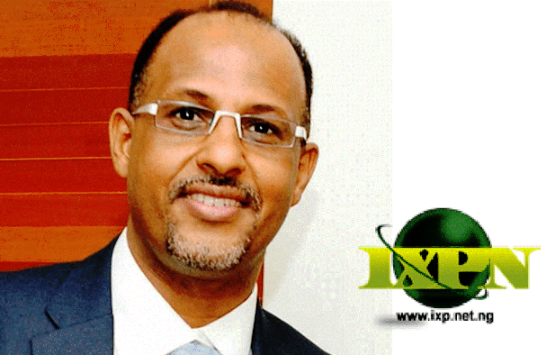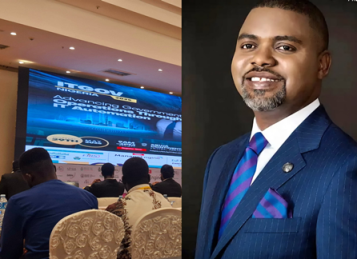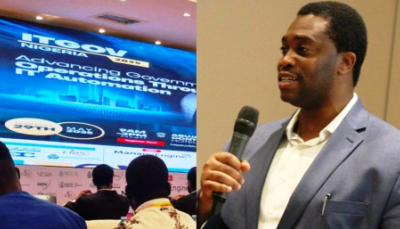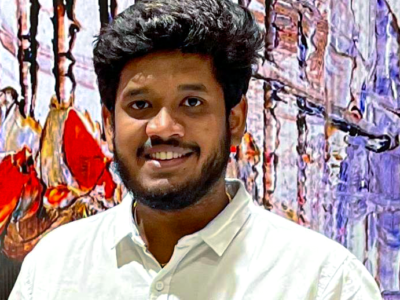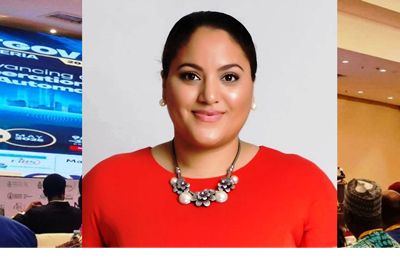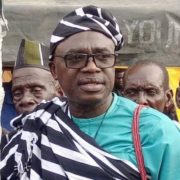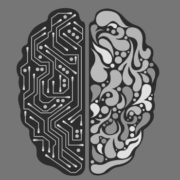In an insightful conversation with IT Edge News, Muhammed Rudman, the pioneering CEO of Internet Exchange Point of Nigeria (IXPN), sheds light on the lingering challenges and promising prospects in the sector. As the helm of Nigeria’s first and only neutral IXP, Rudman highlights the vital impact of power and transmission capacity costs on service quality. Despite these challenges, IXPN remains dedicated to its mission of promoting affordable Internet access nationwide. Rudman expresses optimism that increased investment in data centres will enhance capacity, drive data domestication, and ultimately lead to more affordable internet services for Nigerians.
Let’s look into the future of the internet here in Nigeria. How will things look in the next five years?
In my perspective, I see more data centre investment coming in. As we speak now, we have around 10 megawatts of data centre space. In the next few years, I think it will grow, maybe five times to 50 megawatts of data, because as of this year alone, there are some data centres that are upgrading and based on the upgrade an additional 10, 15 megawatts will be added. So I foresee a large investment in data centre space and if you have large investments that are in data centre space, it means that more content operators and more content providers will not be coming into the country. The Hyper scalars like the Googles, the Facebooks, the Microsoft will have significant data in Nigeria and if they have significant data in Nigeria, it means that we are domesticating our traffic and by domesticating our traffic, it means the cost of the internet in Nigeria will drop
As the leading internet exchange point (IXP) in Nigeria. What are some of the most significant connectivity challenges you are currently facing in ensuring seamless internet traffic exchange among ISPs, content providers and IP centric organisations given that in the last 10 years, there has been a tremendous surge in how all these providers drive traffic?
Initially the major challenge we have and we still have is the cost of transmission capacity between our locations as you know, for example, IXP right now is in eight different locations in Lagos and in different data centers. If we want to link up all the various exchanges, it remains a big challenge to connect to our remote locations. IXP has presence in Abuja, Port Harcourt, Enugu, Kano, and recently in Gombe, so, the major challenge is the cost of transmission capacity, when we want to interconnect these exchanges towards the demystification of traffic.
RELATED: IXPN’s boss Rudman explains why we must embrace IPv6
Another thing like every other service provider, is of course, the cost of energy, cost of electricity. Because most of the data centres we are in are powered by generators, there is high cost of co-location, and then in locations where there is no data centre, we have to find ways to power those locations 24/7, and considering in some of those locations, you know, we don’t generate much revenue. We are doing it as a subsidized service just to ensure that there is even growth of internet service providers in the country and to promote cheaper Internet access in every location in Nigeria that’s why we’re operating those sites. So the major challenge actually is the cost of the transmission capacity and cost of power.
Power remains a challenge across sectors. Is there really anything that the IXPN is doing to address the issue of power? Virtually all the data centres are investing in alternative power sources, green energy power sources.
In some of the locations where we are not running in a standard data centre for example in Kano and in Gombe, we are running on alternative power almost permanently but in order to reduce our operational costs, we switch now and then to the public power that comes infrequently. In those locations, where we have small number of customers, and considering that we are providing a subsidised service to allow new entrants, especially new service providers, community networks to come on board, we have to provide alternate power, not through the generators, but through the solar systems. The initial investment is high but eventually, the running costs is low so that’s what we’re doing.
With emerging trends like IPv6 and Web 3.0 shaping the future of the Internet. How is IXP preparing to adapt its infrastructure and services to accommodate these advancements and facilitate the transition to the next generation of the internet?
In terms of IP version six, from the point of view of IXPN (Internet Exchange Point), you will realise that we are already on IP version six (IPV6); you can go to our website to confirm this and all our members that have IP version six appearing at the exchange point run with the IP version six IP addresses. So, that one is already done, you can confirm in terms of the web 3.0 that we already engaging with the future of the Internet. We try as much as possible to use the most recent application software that we can get our hands on, when it comes to the exchange point. For example, there are different software that we now use to automate peering at the exchange point.
[We must] ensure that there is domestication of data. About 50% to 60% of the data that any country is using should be domesticated….That’s why you don’t hear about submarine cable failure in China or in Germany because 90% of what the Germans are using is in Germany and 90% of what the Chinese are using in terms of Internet access is in China.
Initially, when someone connects to the exchange point, we have to do the configurations manually and all that. Now, all those things are a bit automated in such a way that there are just a few parameters we put, and the software does the actual implementation. So we are poised to embrace the future as a technology company every time, every now and then, that new things come on board and so we follow the trend and ensure that we are not left behind as we are constantly, you know, monitoring some of the largest exchange points in the world to see the general direction, so that we are not left behind.
What role do you see the IXPN playing in shaping the regulatory landscape of Internet services in Nigeria, particularly concerning issues like data privacy, and cyber security – how do you fit into this big picture?
Our contribution towards regulation is really limited when it comes to the data privacy and the other things you mentioned, because we are just an interconnectivity provider, between the service providers so we don’t host you know, data of customers, or individuals in IXPN. What we just provide is purely a point of connectivity where data transmits, right, so we are just data processors, like the rest of the ISPs in the industry. So for example, MTN and the rest, though they hold small customers’ details, but really they are not Google, they are not Facebook, you know, where they can now really hold customers’ information. So, in terms of the general population, IXPN is a membership based organisation where the people that are interconnected are the co-owners of the organisation, because we are a not for profit organisation as a limited company by guarantee.
So considering this factor, we always try to encourage our members, you know, to tell us their issues and the problems they are facing when it comes to regulation. We have a very good and excellent relationship with the regulators, and usually chip in privately to see how, you know, the government can intervene when there are issues needing to be professionally resolved. IXPN, as I said is a membership driven organisation, so we’re active in the Internet Governance Forum space where if we identify certain issues with our customers, that is our members and others, we tend to promote that at the global arena. But apart from that, we don’t really get involved with regulation.
Your role in terms of compliance for your members is strictly advisory?
Yes. We can’t compel anybody, apart from the normal memorandum of understanding that we signed with them when it comes to quality of service. When they connect to us, we don’t really control any other thing. You know, we don’t control how they run their networks. In [Nigeria Internet Registration Association] for example, they sell domains and therefore, they regulate to some extent, the domain industry, but we interconnect service providers, content providers, IP centric organisations, but we can’t dictate to them in reality because that’s within the purview of the regulator (NCC).
How will you describe the Nigerian Internet space in terms of growth with adoption, what are the worrying issues from a user point of view that the government need to address and then from an operator’s point of view, what are those things government or stakeholders could also effectively address to bring about fulfillment to the end users?
The providers, to some extent, need to have the right enabling environment for them to render the kind of service that the end users would really enjoy. There is need for infrastructure but the government should provide the enabling environment. If government does not do that, then it’s difficult for the operators to provide the right quality of service that the end users deserve. For example, in the areas where insecurity is rampant, quality of service cannot be guaranteed. We had situations in Borno during the Boko Haram period where there were no telephone services because Boko Haram destroyed substantial part of the mast. There was no telephone service and no electricity in Borno for months. Insecurity means that the mobile network operators cannot send their engineers to go and work on those sites and therefore they cannot provide better quality of service in those locations.
Government has a critical role to play in ensuring that their citizens enjoy the best telecommunications services by ensuring a level playing ground for all the telecom providers. For example, all the telcos have been complaining about the high cost of energy now; they have been complaining about multiple taxation. Based on what the president of ALTON [Association of Licensed Telecoms Operators of Nigeria] said, around 47 different taxes apply to the telecom operators. These are serious challenges that must be addressed so customers can access good quality of service. Locations also matter. We are in Lagos, a major metropolitan area, people are in business here and operators would want to invest more here to ensure that there is return on investment. For example, 5G will practically enjoy higher patronage here where people can afford 5G phones. Because it a new technology and will not attract such patronage in rural areas due to its higher cost. Telcos are complaining because the cost of power input to running the network has jumped. All the inputs that go into generating telecom services have increased. But the regulators have not allowed the operators to increase their prices in commensurate with the increase of prices of things and inflation. Therefore the quality of service that you expect to get, you might not get it because additional investments are not coming into the country. As long as operators are not getting benefits in running their businesses things will stall in a way that impact on quality of service. They are for profit organisations and not NGOs.
Give us insight on the trends that will shape the internet space in Nigeria in the next five years and also share your comment on how to manage undersea cable cuts. MainOne recorded outages months back because of cable cut and today, Kenya, Uganda or Tanzania are experiencing internet blackout because there is an undersea cable cut. What can be done to keep service going when such issues occur?
It’s for governments of all the countries that have different landing stations to ensure that there is handshake across networks; there is collaboration between the major submarine cable operators, even though they are competitors. For example, there is need for a serious collaboration between Glo and MainOne and all the rest that are here in Nigeria. When MainOne fails for example, Glo can offer quick assistance in terms of capacity. That actually happened when MainOne had issues to keep the connection going until its problem was solved. Collaboration ensured that some of the services were restored. Collaborating between the submarine cable operators will ensure that even if one or two should go down, they can now move to others and share capacity.
The second one is to ensure that at least there is domestication of data. About 50% to 60% of the data that any country is using, to some extent if it’s possible, should be domesticated. If all our banks, all our schools, all our government agencies are hosting all their information in Nigeria, when there is a major submarine cable that goes down it means that we should be able to do our online banking; we should be able to apply for support from government; we should be able to apply for taxes and all that because the information resides within Nigeria. That’s why you don’t hear about submarine cable failure in China or submarine cable failure in Germany because 90% of what the Germans are using is in Germany and 90% of what the Chinese are using in terms of Internet access is in China. Unless we achieve that same level and ensure that critical resources that we are using in Nigeria are domesticated then of course, the impact would be really limited. Diversification comes with a push for set up of data centres and we’re happy in Nigeria that we have a lot of data centres coming in and a lot of investment in terms of data centers coming in. We hope that the major big players in the world that carry content will also be present in those data centres and that will reduce the dependence on the international submarine cables.
Let’s look into the future of the internet here in Nigeria. How will things look in the next five years?
In my perspective, I see more data centre investment coming in. As we speak now, we have around 10 megawatts of data centre space. In the next few years, I think it will grow, maybe five times to 50 megawatts of data, because as of this year alone, there are some data centres that are upgrading and based on the upgrade an additional 10, 15 megawatts will be added. So I foresee a large investment in data centre space and if you have large investments that are in data centre space, it means that more content operators and more content providers will not be coming into the country. The Hyper scalars like the Googles, the Facebooks, the Microsoft will have significant data in Nigeria and if they have significant data in Nigeria, it means that we are domesticating our traffic and by domesticating our traffic, it means the cost of the internet in Nigeria will drop and that means that the affordability of the Internet will be there. More than 70% of Nigerian people will be online at a broadband speed. Based on the National Broadband Plan, broadband right now is around 45%. But in that five years, around 70% to 80% of the end users will be on high speed broadband Internet access. With that, it means that opportunities for people to learn will come in and they will take advantage of new technologies that are coming in like AI, Internet of Things and the rest. There will be greater application of AI, IoT in agriculture, in industries, and in educational sector among others.


